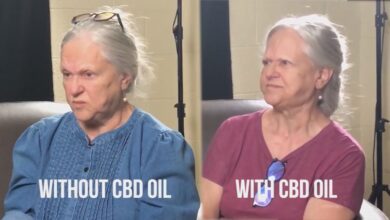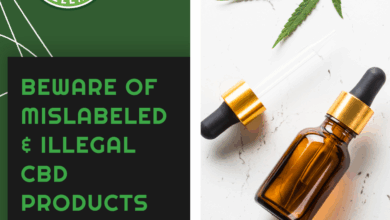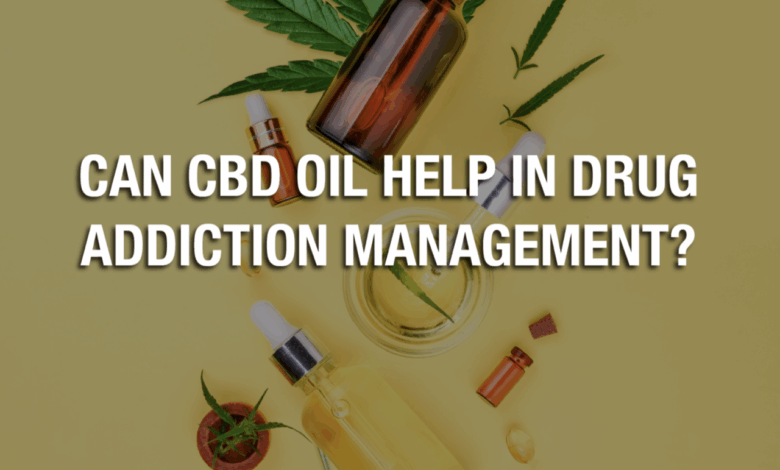
Can CBD reduce heroin cravings? This question is gaining significant attention as more people explore alternative approaches to addiction treatment. CBD, a compound derived from the cannabis plant, has shown promise in various areas, but its effectiveness in combating heroin cravings remains a subject of ongoing research. This in-depth exploration delves into the potential benefits, drawbacks, scientific evidence, and considerations surrounding CBD’s role in heroin addiction management.
The discussion covers the potential mechanisms through which CBD might interact with heroin cravings, examines existing research, and details potential benefits, drawbacks, dosages, and interactions with other substances. We’ll also touch upon safety considerations, alternative treatments, and the importance of consulting healthcare professionals.
Overview of CBD and Heroin Addiction
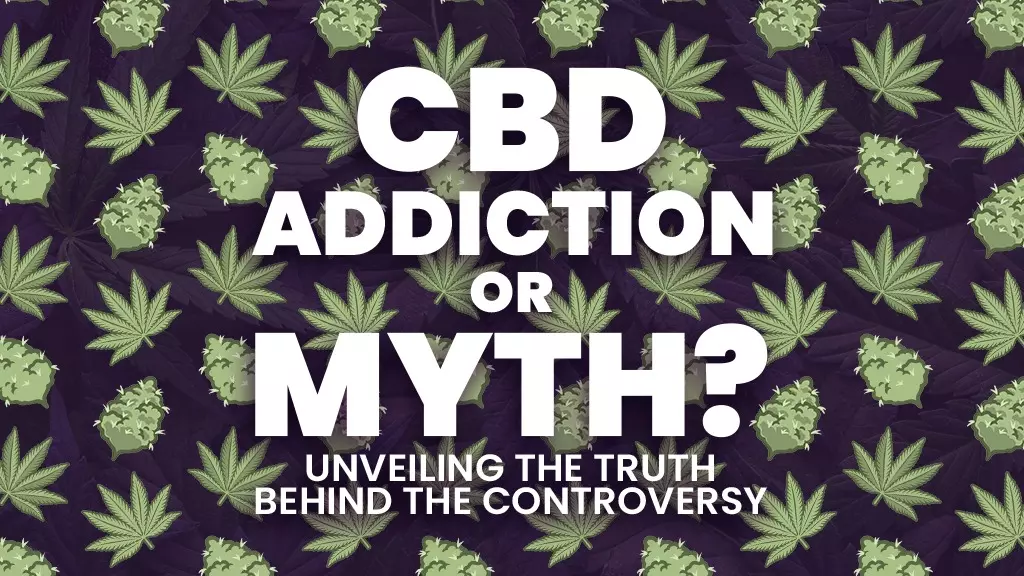
Cannabidiol (CBD), a compound derived from the cannabis plant, has garnered significant interest for its potential therapeutic applications. While its precise mechanisms are still under investigation, CBD is thought to influence various physiological processes in the body. Heroin addiction, on the other hand, is a complex and debilitating condition characterized by compulsive drug-seeking behavior and tolerance. This overview explores the potential interplay between CBD and heroin addiction, examining both the science and the limitations of current understanding.CBD, a non-psychoactive component of cannabis, is believed to interact with the body’s endocannabinoid system.
This system plays a crucial role in regulating various bodily functions, including mood, pain perception, and appetite. CBD’s potential effects include reducing anxiety, promoting relaxation, and potentially mitigating pain. However, the precise mechanisms through which CBD exerts these effects are still being researched. Heroin addiction leads to significant physiological changes in the brain, affecting neurotransmitter systems and creating compulsive drug-seeking behaviors.
These changes, in turn, can profoundly impact an individual’s emotional and cognitive functions.
Purported Effects of CBD
CBD is a non-psychoactive cannabinoid, meaning it does not produce the “high” associated with other cannabis compounds. Its potential therapeutic applications are numerous, stemming from its interaction with the body’s endocannabinoid system. It’s believed to affect neurotransmitter systems, potentially influencing mood, anxiety, and pain perception. Further research is ongoing to fully elucidate the intricate mechanisms behind these effects.
Physiological Effects of Heroin Addiction
Heroin addiction leads to significant alterations in the brain’s reward circuitry. Repeated heroin use causes changes in neurotransmitter systems, including dopamine, serotonin, and endorphins. These changes result in a profound shift in the brain’s reward pathways, driving compulsive drug-seeking behavior. This altered reward circuitry can lead to profound emotional and cognitive consequences, such as anxiety, depression, and impaired decision-making.
Tolerance develops, meaning larger doses are needed to achieve the same effect. Withdrawal symptoms are also prominent and can be life-threatening.
Common Methods of Heroin Addiction Treatment
Several approaches are employed in treating heroin addiction. These methods often combine medications, therapy, and support systems. Methadone and buprenorphine are frequently used to manage withdrawal symptoms and cravings. Behavioral therapies, such as cognitive-behavioral therapy (CBT), help individuals develop coping mechanisms and strategies for relapse prevention. Support groups, such as Narcotics Anonymous, offer crucial peer support and guidance for recovery.
Potential Mechanisms of CBD Interaction with Heroin Cravings
CBD’s potential interaction with heroin cravings is a subject of ongoing research. Some studies suggest that CBD might reduce anxiety and stress, which are often triggers for cravings. Its potential to modulate neurotransmitter systems involved in reward and motivation might also contribute to its effect on cravings. However, more rigorous and controlled research is needed to establish a definitive link between CBD and heroin craving reduction.
Current Scientific Consensus on CBD’s Role in Treating Opioid Addiction
The current scientific consensus on CBD’s role in treating opioid addiction, including heroin addiction, is cautiously optimistic, but not definitive. While some studies suggest potential benefits in reducing cravings and withdrawal symptoms, rigorous, controlled clinical trials are needed to establish its efficacy and safety. The existing research primarily focuses on animal models or small-scale human studies, lacking the large-scale, long-term trials necessary to draw conclusive clinical implications.
While the potential of CBD to reduce heroin cravings is a hot topic, it’s interesting to note that some studies are exploring different avenues of potential health benefits. For example, a recent study found that the psoriasis medication Otezla, psoriasis medication Otezla leads to fat loss in people with psoriatic arthritis, study says , suggesting unexpected positive outcomes from seemingly unrelated treatments.
This highlights the complex ways our bodies react to different substances and how research continues to uncover new connections. Ultimately, more research is needed to fully understand CBD’s potential impact on cravings and addiction.
Therefore, CBD should not be considered a primary or sole treatment for heroin addiction.
Potential Benefits and Drawbacks of Using CBD for Heroin Cravings
CBD, a compound derived from the cannabis plant, has garnered attention for its potential therapeutic properties, including its possible role in managing cravings associated with opioid use disorders. While promising, its efficacy and safety in this context remain areas of ongoing research. This section explores the potential benefits and drawbacks of incorporating CBD into heroin addiction treatment, along with comparisons to other established methods and potential interactions with other medications.
Potential Benefits of CBD for Managing Heroin Cravings
CBD may help alleviate heroin cravings by influencing neurochemical pathways associated with reward and motivation. Preliminary research suggests CBD could modulate the brain’s response to dopamine, a neurotransmitter crucial for feelings of pleasure and reward, which are often associated with substance use. By potentially reducing the intensity of cravings, CBD could make it easier for individuals to abstain from heroin.
It may also offer a complementary approach to existing treatments, potentially reducing the severity of withdrawal symptoms.
Potential Drawbacks and Risks of Using CBD for Heroin Cravings
While CBD shows promise, there are potential drawbacks to consider. The lack of extensive, rigorous clinical trials specifically evaluating CBD’s effectiveness in treating heroin addiction limits the definitive understanding of its safety and efficacy. Individual responses to CBD can vary, and some individuals may experience adverse effects like anxiety, diarrhea, or changes in appetite. Moreover, the inconsistent quality and standardization of CBD products available on the market raise concerns about potential contaminants or inaccuracies in labeling.
It is crucial to consult with a healthcare professional before incorporating CBD into any treatment plan.
Comparison of CBD’s Potential Effects with Other Treatments for Heroin Addiction
Existing treatments for heroin addiction, such as methadone and buprenorphine, target opioid receptors in the brain to reduce cravings and withdrawal symptoms. CBD’s mechanism of action differs, potentially offering an alternative or complementary approach. Research is still needed to definitively compare the efficacy and safety profiles of CBD to traditional treatments. Factors like individual patient response and the presence of co-occurring mental health conditions will likely influence treatment outcomes.
Potential Interactions with Other Medications Commonly Used in Heroin Addiction Treatment
CBD may interact with other medications used in heroin addiction treatment. For example, some medications used to manage withdrawal symptoms or address underlying mental health conditions might have overlapping effects with CBD. Careful monitoring and consultation with a healthcare professional are essential to avoid potential drug interactions.
Table: Potential Benefits and Drawbacks of CBD Use for Heroin Cravings
| Benefit | Drawback | Explanation |
|---|---|---|
| Potential reduction in heroin cravings | Lack of extensive clinical trials | Early research suggests CBD may modulate dopamine pathways, potentially reducing cravings. However, robust clinical trials are still needed. |
| Potential complementary approach to existing treatments | Variability in individual responses | CBD might enhance the effectiveness of existing therapies. However, individual responses can differ significantly, requiring careful monitoring. |
| Potential reduction in withdrawal symptoms | Inconsistency in product quality | Some studies suggest CBD might alleviate some withdrawal symptoms. However, the quality and standardization of CBD products vary significantly. |
| Possible alternative or complementary approach to opioid receptor-based treatments | Potential for interactions with other medications | CBD’s mechanism of action differs from opioid receptor-based treatments, potentially offering an alternative approach. However, it could interact with other medications, highlighting the need for careful monitoring. |
Dosage and Administration of CBD for Heroin Cravings
Navigating the realm of CBD for managing heroin cravings requires careful consideration of dosage and administration methods. While promising, CBD’s effectiveness in this context is not definitively proven and varies significantly from individual to individual. The lack of standardized clinical trials on this specific application necessitates a cautious and personalized approach, always in conjunction with professional medical guidance.
Recommended CBD Dosages
Unfortunately, there’s no universally agreed-upon dosage for CBD in relation to heroin cravings. Studies investigating CBD’s potential role in addiction often use varying dosages and methods, making direct comparisons challenging. Some preliminary research suggests that higher doses might be necessary for noticeable effects, but this remains speculative and warrants further investigation. Individual responses to CBD can also differ greatly, requiring a personalized approach.
It’s essential to begin with a low dose and gradually increase it under the guidance of a healthcare professional, monitoring for potential side effects.
Administration Methods, Can cbd reduce heroin cravings
CBD can be administered in several ways, each with its own advantages and disadvantages. Understanding these methods is crucial for tailoring a strategy that best suits individual needs and preferences.
- Oral Consumption: CBD can be consumed orally in various forms, including capsules, edibles, and tinctures. This method offers a convenient and potentially long-lasting effect. However, the absorption rate can be slower compared to other methods, and factors like the individual’s metabolism and the specific formulation can influence the efficacy.
- Vaping: CBD vapes allow for rapid absorption, often leading to a quicker onset of effects. This method may be appealing for individuals seeking immediate relief from cravings. However, potential concerns regarding the purity and safety of vaping products should be addressed with a qualified healthcare professional.
- Topical Application: Applying CBD topically, such as through creams or balms, is often used for localized pain relief. While it might not be the primary method for addressing heroin cravings, it could be beneficial for managing associated symptoms like muscle tension.
Factors Influencing Optimal Dosage
Several factors can influence the optimal CBD dosage for managing heroin cravings. Individual metabolism, body weight, and the specific formulation of the CBD product all play significant roles. Pre-existing health conditions and concomitant medications can also interact with CBD, potentially affecting its effectiveness or safety. Moreover, the severity of heroin cravings and the individual’s overall response to CBD will influence the required dosage.
Importance of Professional Consultation
Before starting any CBD regimen, particularly for managing withdrawal symptoms or cravings associated with heroin addiction, consulting a healthcare professional is paramount. They can assess individual needs, evaluate potential risks and interactions with existing medications, and provide personalized guidance on dosage and administration. A qualified healthcare professional can also offer valuable support and resources to address the underlying addiction.
CBD Administration Methods Table
| Administration Method | Pros | Cons |
|---|---|---|
| Oral Consumption | Convenient, potentially long-lasting effects | Slower absorption rate, individual metabolism variability |
| Vaping | Rapid absorption, quicker onset of effects | Potential purity concerns, safety considerations |
| Topical Application | Localized relief for associated symptoms | May not be as effective for cravings, slower absorption |
Potential Interactions with Other Substances
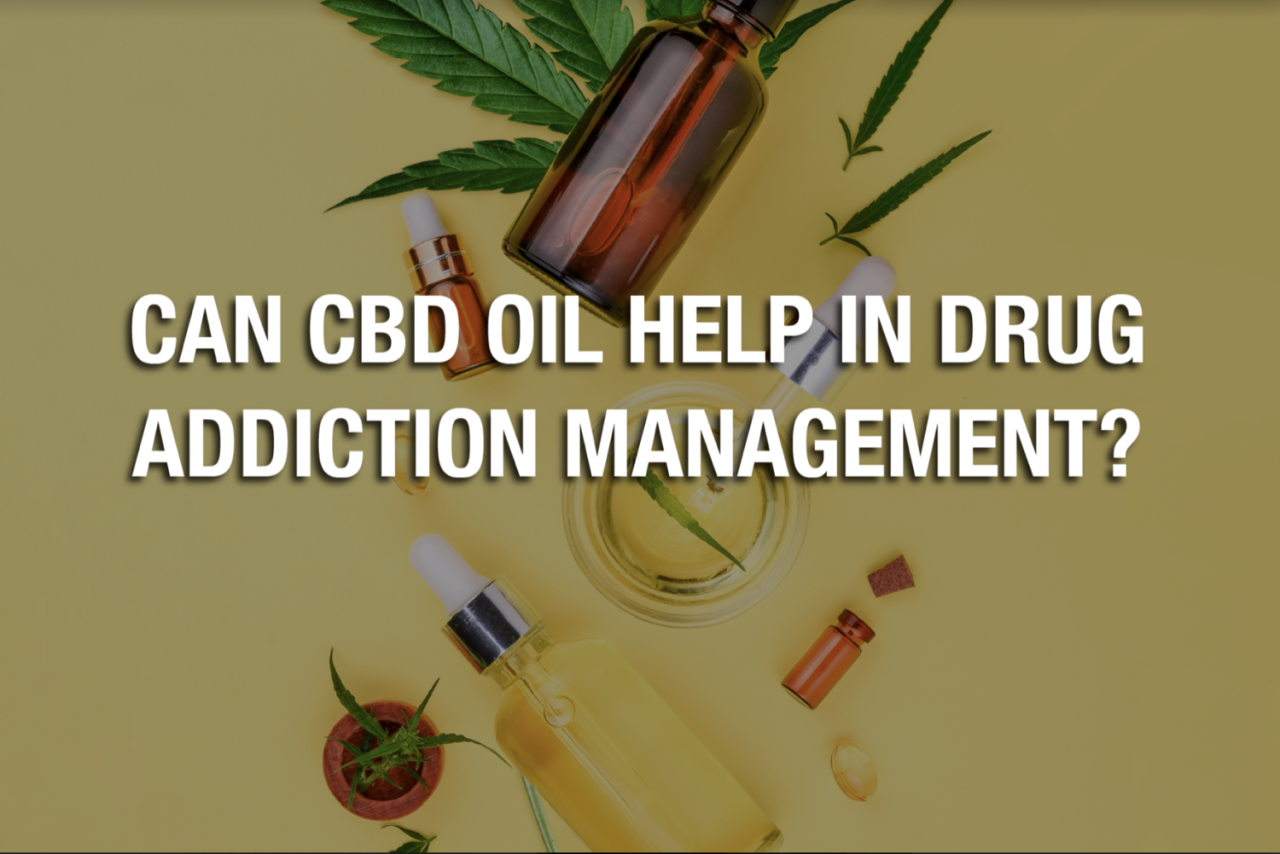
CBD’s potential interaction with other substances is a crucial factor to consider when exploring its use in conjunction with heroin addiction treatment. While promising, CBD’s effect on the body isn’t always predictable in isolation, and its interplay with existing medications or substances used to manage heroin withdrawal or cravings could significantly impact its efficacy or safety. Understanding these potential interactions is essential for responsible and effective integration into treatment plans.
Potential Interactions with Medications Used in Heroin Addiction Treatment
Many medications are used in conjunction with heroin addiction treatment, including opioid antagonists, antidepressants, and anxiety medications. CBD’s impact on these medications is not fully understood, and further research is needed. It’s vital to consult with a healthcare professional before combining CBD with any existing medication to avoid potential adverse reactions. The interplay between CBD and these medications can lead to unexpected outcomes, necessitating careful monitoring and adjustment of dosages as needed.
Potential Interactions with Commonly Abused Substances
CBD’s potential interactions extend beyond prescription medications to include substances commonly abused alongside heroin, such as nicotine, alcohol, and other illicit drugs. These substances can significantly alter the body’s response to CBD, potentially leading to unexpected and potentially harmful effects. For instance, CBD’s interaction with nicotine could modify nicotine’s impact on the brain reward pathways, while alcohol might influence CBD’s metabolism and absorption.
Examples of Potential Synergistic and Antagonistic Effects
CBD’s interaction with other substances can result in either synergistic or antagonistic effects. Synergistic effects occur when the combined effect of two substances is greater than the sum of their individual effects. For example, CBD might enhance the effectiveness of naltrexone (an opioid antagonist) in reducing heroin cravings, creating a more robust treatment response. Conversely, antagonistic effects occur when the combined effect of two substances is less than the sum of their individual effects.
For instance, CBD might reduce the effectiveness of certain antidepressants, potentially necessitating a dosage adjustment. Such interactions underscore the need for careful monitoring and individualized treatment plans.
Table of Potential Interactions
| Substance | Interaction Type | Potential Outcome |
|---|---|---|
| Nicotine | Potentially Antagonistic | CBD might alter nicotine’s impact on brain reward pathways, potentially leading to unpredictable effects on craving reduction. |
| Alcohol | Potentially Synergistic or Antagonistic | Alcohol can affect CBD’s metabolism and absorption, potentially leading to increased or decreased effects. |
| Opioid Antagonists (e.g., Naltrexone) | Potentially Synergistic | CBD might enhance the effectiveness of naltrexone in reducing cravings, potentially leading to a more robust treatment response. |
| Antidepressants | Potentially Antagonistic | CBD might reduce the effectiveness of certain antidepressants, potentially necessitating dosage adjustments. |
| Benzodiazepines | Potentially Synergistic or Antagonistic | The interaction is complex and requires careful monitoring, potentially leading to sedation or reduced anxiety reduction effects. |
Safety and Side Effects of CBD Use for Heroin Cravings: Can Cbd Reduce Heroin Cravings
While CBD shows promise in potentially reducing heroin cravings, it’s crucial to understand the potential side effects and safety considerations. This discussion will delve into the possible adverse reactions associated with CBD use, particularly in relation to heroin addiction, and highlight the importance of careful monitoring and professional guidance.Understanding the potential side effects of CBD use, especially when combined with heroin withdrawal or cravings, is vital.
Proper safety measures and a watchful approach are paramount to ensuring a positive experience and minimizing risks.
While the science on CBD’s potential to curb heroin cravings is still developing, it’s fascinating to see how celebrities like Lady Gaga, with her recent public declaration about fibromyalgia via Twitter, lady gaga fibromyalgia twitter diagnosis , highlight the need for more research into natural pain management solutions. Ultimately, finding effective ways to manage withdrawal symptoms and cravings for substances like heroin is a crucial step towards recovery.
Potential Side Effects of CBD Use
CBD, while generally considered safe, can still produce various side effects in some individuals. These effects can range from mild discomfort to more significant concerns, especially when combined with the complexities of heroin addiction. Common side effects include dry mouth, diarrhea, fatigue, and changes in appetite. Less common, but potentially more serious, effects include liver issues, changes in blood pressure, or skin reactions.
Safety Considerations When Using CBD for Heroin Cravings
Several factors influence the safety of CBD use for heroin cravings. Crucially, individual responses vary significantly. Factors such as the specific CBD product used, dosage, the presence of other substances in the individual’s system (including medications and other supplements), and overall health conditions all play a significant role. It is essential to consult with a healthcare professional before incorporating CBD into a treatment plan for heroin cravings, particularly if the individual is already undergoing other treatments.
While the jury’s still out on whether CBD can significantly reduce heroin cravings, it’s interesting to consider how dietary choices can impact health. For example, a balanced diet rich in dairy products, as detailed in this article on how dairy products can help lower type 2 diabetes risk while processed meats raise it how dairy products can help lower type 2 diabetes risk while processed meats raise it , might play a role in overall well-being, potentially influencing cravings and recovery.
Ultimately, more research is needed to understand the complex relationship between diet, substance use, and potential CBD benefits.
Importance of Monitoring for Adverse Reactions
Regular monitoring is essential to detect any adverse reactions promptly. This involves closely observing for any changes in physical or mental well-being. A healthcare professional can provide guidance on the specific parameters to track, which might include vital signs, mood changes, and reported symptoms. This diligent monitoring allows for early intervention if complications arise. Consistent communication with the healthcare provider is key.
Reporting Adverse Reactions to a Healthcare Professional
Any adverse reaction, regardless of perceived severity, should be immediately reported to a healthcare professional. This includes symptoms like unusual fatigue, changes in heart rate, or any other perceived discomfort. Prompt reporting allows for accurate assessment and management of potential complications. Delaying reporting could potentially worsen the situation.
Table Summarizing Potential Side Effects
| Potential Side Effect | Severity | Mitigation Measures |
|---|---|---|
| Dry mouth | Mild | Increase water intake, sugar-free candies |
| Diarrhea | Mild to Moderate | Adjust CBD dosage, consume foods low in fiber, seek medical advice if severe |
| Fatigue | Mild to Moderate | Ensure adequate sleep, balanced diet, adjust CBD dosage |
| Changes in Appetite | Mild to Moderate | Monitor food intake, adjust CBD dosage |
| Liver Issues | Moderate to Severe | Consult with a healthcare professional immediately, monitor liver function tests |
| Blood Pressure Changes | Moderate to Severe | Monitor blood pressure, consult with a healthcare professional immediately |
| Skin Reactions | Mild to Moderate | Use hypoallergenic products, discontinue CBD use if reaction persists |
| Anxiety or Panic Attacks | Moderate to Severe | Seek medical advice immediately, monitor for worsening symptoms |
Alternative and Complementary Treatments
Heroin addiction is a complex issue requiring multifaceted approaches. While CBD may hold promise in managing cravings, it’s not a standalone solution. Effective treatment often involves a combination of therapies and support systems to address the multifaceted nature of the addiction. This section explores alternative and complementary treatments, highlighting their role alongside CBD, and emphasizing the importance of a comprehensive strategy.
Alternative Treatments for Heroin Addiction
Alternative treatments for heroin addiction extend beyond pharmacological interventions. Behavioral therapies and support groups play crucial roles in fostering long-term recovery. These methods focus on addressing the underlying psychological and social factors that contribute to addiction. Effective interventions equip individuals with coping mechanisms and strategies to navigate challenging situations without resorting to substance use.
Behavioral Therapies in Addiction Treatment
Behavioral therapies are widely used in conjunction with medication for heroin addiction. These therapies equip individuals with skills to manage cravings, develop healthier coping mechanisms, and avoid relapse. Cognitive Behavioral Therapy (CBT) is a common approach that helps individuals identify and change negative thought patterns and behaviors associated with addiction. Motivational Interviewing (MI) helps individuals explore their motivations for change and develop intrinsic motivation to abstain from drug use.
- Cognitive Behavioral Therapy (CBT): CBT helps individuals identify and challenge negative thoughts and beliefs that contribute to their substance use. This involves learning to recognize triggers and develop healthier coping strategies. For example, if an individual experiences stress as a trigger, CBT helps them identify alternative stress-reducing techniques, such as exercise or mindfulness. This empowers them to manage stress without resorting to drugs.
- Motivational Interviewing (MI): MI is a collaborative counseling style that helps individuals explore their own motivations for change. It focuses on helping individuals resolve ambivalence about their substance use and build their intrinsic motivation to recover. The goal is to empower the individual to take ownership of their recovery journey.
- Contingency Management (CM): CM utilizes positive reinforcement to encourage abstinence. Individuals receive rewards for maintaining sobriety, fostering positive reinforcement for abstinence. This strengthens the connection between sobriety and positive outcomes.
- Family Therapy: Family therapy involves the entire family unit in the treatment process. This approach recognizes the crucial role of family dynamics in addiction and works towards healthier family interactions and communication patterns.
Support Groups in Addiction Recovery
Support groups, such as Narcotics Anonymous (NA) and Alcoholics Anonymous (AA), provide a supportive community of individuals who understand the challenges of addiction. Sharing experiences, coping strategies, and encouragement fosters a sense of belonging and reduces feelings of isolation. This shared experience can be immensely helpful in maintaining sobriety.
Comparing CBD and Alternative Treatments
| Treatment Type | Mechanism | Effectiveness |
|---|---|---|
| CBD | Potential modulation of neurotransmitters and receptors, impacting cravings and withdrawal symptoms. | Limited evidence of effectiveness as a primary treatment; more research needed to fully assess its efficacy. |
| CBT | Identifying and modifying negative thought patterns and behaviors. | Demonstrated effectiveness in reducing relapse rates and improving overall functioning. |
| MI | Building intrinsic motivation for change and addressing ambivalence. | Effective in increasing motivation and commitment to recovery. |
| Support Groups | Providing social support, shared experience, and encouragement. | Significant role in maintaining sobriety and reducing isolation. |
Comprehensive Approach to Heroin Addiction
A comprehensive approach to heroin addiction treatment acknowledges the multifaceted nature of the issue. It integrates pharmacological interventions, such as medication-assisted treatment (MAT), with behavioral therapies and support groups. A holistic strategy addresses the physical, psychological, and social aspects of addiction, enhancing the chances of successful recovery. A crucial component is tailoring the approach to the individual’s specific needs and circumstances.
No single approach fits all.
Closing Notes
In conclusion, while promising research exists, definitive answers regarding CBD’s ability to significantly reduce heroin cravings are still emerging. The existing studies, while offering valuable insights, often present limitations in terms of sample size and duration. Furthermore, the potential benefits of CBD must be weighed against potential drawbacks and interactions with other medications. Crucially, seeking guidance from healthcare professionals is paramount before incorporating CBD into any addiction treatment plan.
A comprehensive approach that includes behavioral therapies, support groups, and careful medical oversight is essential for successful heroin addiction management.

